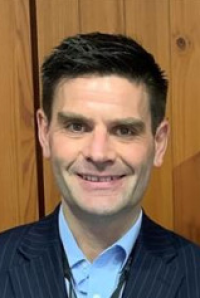Focus on Procurement interview – Michael Alp of New Zealand Government Procurement
Michael Alp shares career advice, his thoughts for suppliers considering bidding for government contracts, and what he believes is New Zealand’s greatest contribution to the procurement community.

New Zealand Government Procurement General Manager Michael Alp.
Where are you from?
I’m proudly from Lower Hutt. It’s where I was born, and after spending some time away, I returned in 2005. It’s home.
What did you train in and where did you study?
I originally trained in hotel management through a private institution in the mid-1990s. Today, that qualification would be comparable to a Bachelor of Tourism.
What attracted you to a role in procurement? And what keeps you here?
Interestingly, procurement found me before I found it. In my early career, several managers restructured teams and added procurement to my portfolio. Over time, it became a natural fit. When the General Manager role was advertised, I knew it was the opportunity I’d been working towards. What keeps me here is the impact - procurement is a strategic lever for government, and I’m passionate about driving that transformation.
What advice would you give anyone considering a career in procurement?
Be curious and back yourself. Procurement is fundamentally about understanding people and purpose. Ask your stakeholders, “What are you trying to achieve, and why?” The best outcomes come from listening, questioning, and tailoring your approach - not from following a rigid formula.
What are three things the public may not realise about procurement’s role in their lives?
- Everything is procured - from infrastructure to IT systems to social services.
- Procurement is a stewardship function - it helps organisations critically assess value, cost, and impact.
- Government procurement influences the economy - public sector spending represents nearly 20% of GDP, so how we spend directly affects every New Zealander.
Procurement is not purchasing. How does it operate within the wider agency system?
Procurement should be embedded in strategic planning - alongside finance, people and culture, and risk. It belongs at the front end of investment discussions, whether annual or multi-year, to ensure successful delivery of services, goods, and outcomes.
You’ve spoken about strengthening connections with Government CFOs. What’s your approach and goal?
I’ve reached out to the Government CFO network to introduce myself and highlight the importance of collaboration between our functions. I’ve also met with the leadership of the Government Finance Profession to explore joint initiatives. Our goal is to align functional leadership and agency support to drive better commercial outcomes across government.
Any advice for suppliers bidding for government contracts?
Keep it simple and focused. Understand the core requirements and engage early if anything is unclear. Procurement teams are there to ensure fairness and transparency - use them as a resource.
What are your top three achievements in procurement?
- Leading the MIQ contracting effort during a critical time.
- Being a finalist for the Procurement Professional of the Year award (even if Sean Barnes took the win!).
- Building a pragmatic, customer-focused procurement team at MBIE that delivers real value.
What’s the most exciting development in procurement right now?
The integration of AI across large datasets. It’s a game changer - freeing up time for deeper insights, strategic advice, and better decision-making.
If budget wasn’t a constraint, what would you introduce to advance procurement?
Nationwide roadshows showcasing what great procurement looks like. We want people to feel confident using the Rules and making sound commercial decisions. Understanding the “musts” of the Rules is key to unlocking value.
What is New Zealand’s greatest contribution to the procurement community, locally or globally?
New Zealand is recognised for its transparency in procurement. That reputation is hard-earned and deeply valuable - it underpins trust, fairness, and integrity in how we operate.